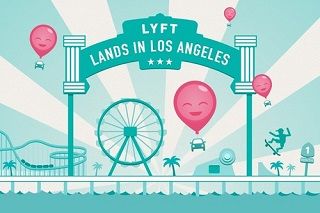Car Ownership and Sustainability

Be this as it may, yes, he was obviously correct: young people are indeed our future. That’s why it’s so gratifying to see that they lead the charge in a great number of directions that favor sustainability, one of which is a bold reduction in car ownership. Just like the fixed idea that everyone needs a telephone land line, young people are questioning the concept that they somehow need to own a 4000-pound piece of steel that sits idle in its garage over 23 hours a day, and, in 75% of cases, has zero passengers 60 minutes that it’s actually in use.
My colleague Jon LeSage writes:
Ridesharing services are skyrocketing in user traffic this year, with Uber leading the path in US markets (followed by two other San Francisco-based companies, Lyft and Sidecar). Uber is worth over $40 billion now with major backers like Google Ventures getting onboard; its revenue is expected to be $10 billion this year. Airports are authorizing limited access to Uber and Lyft to see how it works out, as taxi drivers and livery companies battle ridesharing in lawsuits and lobbying.
Millennials in the 18-to-33 year old range are the principal demographic market for ridesharing and carsharing. They love that you can use your mobile device to call on a ride from Uber and have the car show up within five minutes; and that the cost and experience is much more attractive than taxi rides or walking several blocks to a train station. They’re also very interested in carsharing services and are trying out Zipcar and Car2Go around the country.
It’s very possible that car ownership will, over the coming few decades, come to be regarded as a disease. Fine by me.

This is a very promising trend, but going completely car-less can only work in cities that have good public transportation, and it can only work in the regions of those cities that have good public transportation.
Still, it’s a good trend.. and one I hope will gradually expand.
But it’s clearly a niche trend. YTD vehicle sales in the U.S. market have increased by 5.4% over 2014 – we’re on track for a record breaking year (to our communal great misfortune, car sales dropped YOY, which means more than 100% of the increase came from sales of pickup trucks (up 11%) and SUV’s (up 19%).
I lived in Washington DC for four years in the late 1970s, and I owned a car. If I had that to do over again, there’s no way on God’s green Earth I would have that ball and chain around my ankle. Traffic was bad and parking was worse. Now, with car-sharing, I would just do a mini-rental anytime I couldn’t take public transportation.